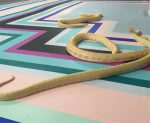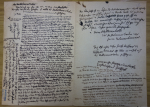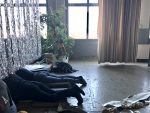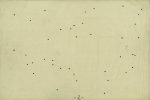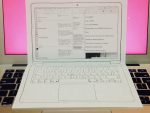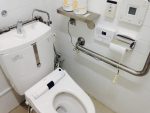The Schedule will be updated daily
for more information visit https:///www.apass.be/settlement-11/
MON 22.05
14:00 Introduction and Clearing out the Space
18:00 Improvised Dinner
TUE 23.05
10:00 Warm Up Practice
Esther Rodriguez-Barbero
14:00 Peer Critique Leo
Leo Kay
15:00 Spaces of Commoning
Zeljko Blace, Time Lab (Ghent), Vladimir Miiller
17:00 1 Minute Festival
WED 24.05
10:00 Warm Up Practice
Esther Rodriguez-Barbero
14:00 Peer Critique Eszer
Leo Kay
13:30 Collaboration Interview
Eszter and Esther
14:00 Marie Van Leeuwen (ArtEZ)
Conversation with Lilia Mestre
15:00 Session #1 Planning nothing
Where we collectively work out the rules surrounding session #2
Leo Kay
THU 25.05
09:30 Sensation as Score (Movement Practice)
Anouk Llaurens
11:00 Reading Group
Lilia Mestre and Score participants
13:00 2 Minute Festival
17:00 Medium Score 2
| Lilia Mestre
21:00
FR 26.05
10:00 Warm Up Practice
Esther Rodriguez-Barbero
10:30 Cleaning
11:30 Peer Critique slot
Leo Kay
13:00 Making Space For
Collective practice of framing and naming spaces
Esther Rodriguez-Barbero and Leo Kay
14:30 Session #2 Doing Nothing
We gather, head out to a chosen spot and using the ground rules from session #1, do nothing.
Leo Kay
15:30 Session #3 Planning Something
We spend half an hour as a group planning what we will do the following week.
We aim to be prescriptive and impose structures that allow us to fulfil our aims.
Leo Kay
SAT 27.05
MO 29.05
11:00 Architecture and Movement
Creating and experimenting with space by moving simple forms /structures.
Duration 45min
Luisa Fillitz
15:00 Playground
Eszter Némethi
TUE 30.05
11:00 Play-ground
During a short and playful workshop, we will explore the materials and existing geographies of the Settlement to create instructions and scores; while also exploring how dynamics, forms and narratives are conjured through this process.
Eszter Nemethi
13:00 Planning a.pass block III/2017
Vladimir Miller
15:00 Dialogue with Alex Arteaga
What does it mean to think? What does research mean? What can be the cognitive function of aesthetic practices? How should be these practices organized and performed in order to “do research”? And on this basis, what can be the contribution of artistic research to the epistemic field? These, an other related, are the questions that will be addressed in an open dialogue framed by Alex Arteaga.
17:00 Feminist Benjamin Reading Group
What does it mean to read as a feminist? The question may seem odd, or even trivial, but it engages the very ground of our work as artists and thinkers. Indeed, how is our reflection oriented, if not by the very way in which we turn to the text? And yet, when we think about methodologies and epistemologies, we rarely interrogate the practice of reading itself.
Caroline Godart and Marialena Marouda
WED 31.05
11:30 Session #4 Doing Something
We gather to do whatever we, as a group, decided that we wanted to do in the previous session.
We will have decided all the parameters of the experience (or lack of them) in the 3rd session. In this last session we just do them.
Leo Kay
THU 01.06
9:30 Sensation as Score (Movement Practice)
Anouk Llaurens
11:00 Reading Group
Lilia Mestre and Score participants
17:00 Medium Score 2
| Lilia Mestre
21:00
FR 02.06
SAT 03.06
12:00 Settlement Review
14:00 Build Down

